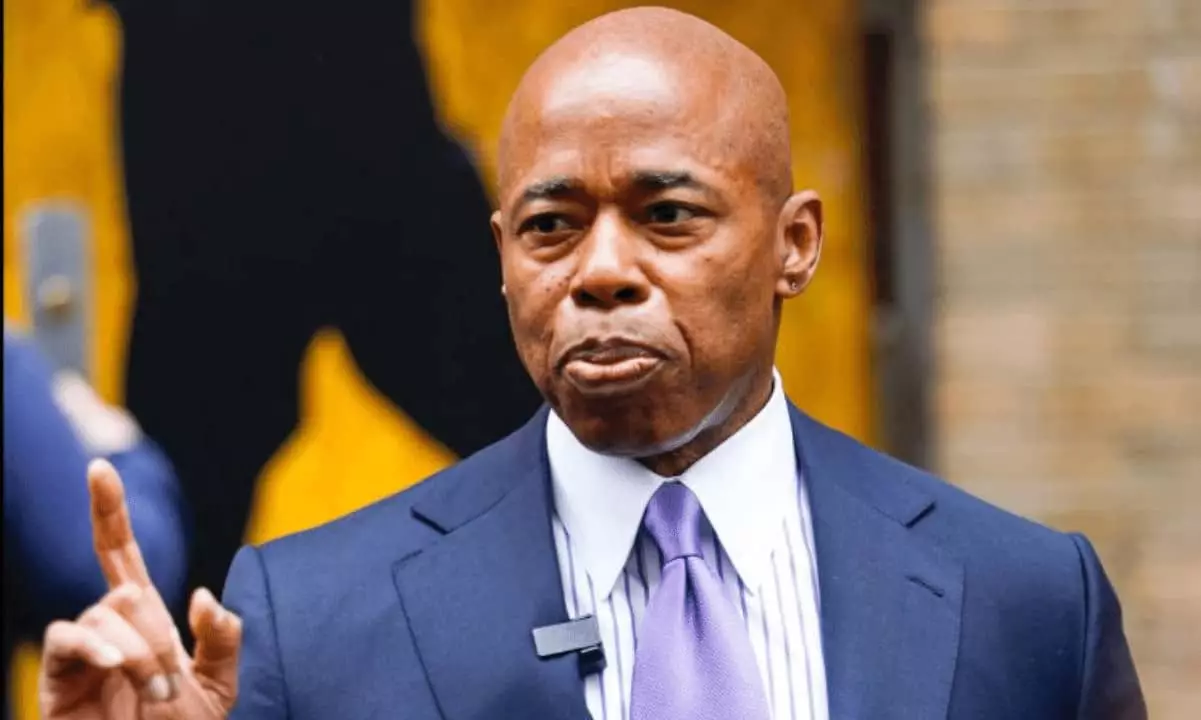The recent indictment of New York City Mayor Eric Adams has sent shockwaves through the political landscape, raising significant concerns about corruption and accountability within city government. This article will delve into the implications of these developments, examining the background of the allegations, the impact on Adams’ administration, and the broader implications for leadership in New York City.
Mayor Eric Adams, who has a background as a former police captain, attracted attention early in his administration with bold promises aimed at positioning New York as a hub for cryptocurrency. However, his tenure has taken a tumultuous turn amid serious allegations of corruption. Reports indicate that federal prosecutors have issued sealed indictments against the mayor, though the specifics of the charges remain unclear. Such a lack of transparency raises questions about due process and the rights of the accused in high-stakes political environments.
The investigation intensified following an FBI raid on the home of Brianna Suggs, Adams’ chief campaign fundraiser, which became a focal point in unraveling potential misconduct involving foreign donations. Notably, Turkish government agents are alleged to have unlawfully contributed to Adams’ campaign, leading to serious questions about the integrity of his financial backers and campaign practices.
In parallel, two former fire department officials were implicated in a bribery scandal that involved substantial financial gain for preferential treatment. This mix of allegations paints a disturbing picture of a potentially compromised administration, whereby Adams’ ability to lead and instill confidence in the public is now under severe scrutiny.
The fallout from these allegations has been swift and severe. Several city officials have chosen to resign amid mounting pressure, including notable figures like the police commissioner and the mayor’s chief advocate. Such resignations may indicate a toxic political environment, characterized by fear, distrust, and a cloud of suspicion that can hinder effective governance. An administration in turmoil raises concerns for city residents about the stability of their leadership in critical times.
Additionally, Adams has adopted a defiant stance, asserting his innocence and vowing to fight any charges against him. His public declarations illustrate a refusal to back down, a quality inherent in strong leadership, yet also suggest a potentially isolating position as more voices within his administration distance themselves amid the controversy. His assertiveness may energize his supporters; however, it risks alienating constituents calling for accountability.
Eric Adams has been a vocal advocate for cryptocurrency, even converting his first paychecks into Bitcoin and Ethereum, aiming to boost New York City’s standing in the rapidly evolving digital currency landscape. However, his relationship with crypto became contentious, particularly after he neglected to disclose his holdings, a misstep that led to scrutiny over his financial transparency. Given the volatile nature of cryptocurrency, the mayor’s staunch advocacy puts him at odds with cautionary voices advocating regulation to protect consumers.
Despite the downturns in the cryptocurrency market, Adams remains optimistic, reinforcing his belief in the resilience of the industry. However, his assertion that challenges faced by the crypto sector mirror those of traditional markets could be viewed as a diversion from the core issues at hand. Adams’ statements may reflect a broader misunderstanding that transparency and accountability are as critical in governance as they are in financial markets.
The indictment of Mayor Eric Adams not only questions his future but also challenges the integrity of New York City’s leadership. The events unfolding against the backdrop of economic uncertainties and the push for modernization via technology expose the vulnerabilities of political figures in the modern world.
As the legal proceedings continue, New Yorkers will need to grapple with questions of trust in their elected officials and the systems of governance that protect their rights and the public welfare. The coming weeks will be critical for the mayor and his administration, as the implications of these allegations will inevitably mold the political narrative surrounding transparency, reform, and accountability in one of the world’s most influential cities. The ultimate outcome of this investigation may redefine not just the Adams administration but also shape future leadership dynamics in New York City.








